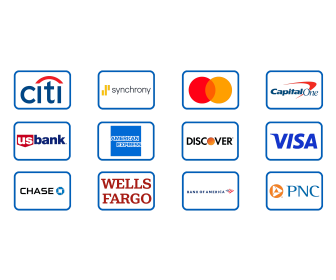What Happens to Your Credit Score When You Open a New Card?
Opening a new credit card can feel like a smart financial move — more rewards, more flexibility, and sometimes a juicy welcome bonus. But it can also affect your credit score in ways many people don’t expect. Whether that impact is good or bad depends on how you manage the new account. Here’s what really happens behind the scenes when you open a new card.
1. A Hard Inquiry Can Temporarily Lower Your Score
When you apply for a credit card, the issuer performs a hard credit inquiry — a check of your credit report to evaluate risk. According to Experian, a single inquiry typically reduces your score by about 3–5 points. The impact fades after a few months and completely disappears from your report after two years.
Multiple applications in a short period, however, can amplify the dip. That’s why it’s best to space out credit applications — ideally, one every six months or more.
2. Your Average Age of Credit Drops
One of the key components in your credit score is the length of credit history. When you add a new account, your “average age of accounts” decreases, which can cause a small, temporary dip. But the good news is that this factor improves naturally as your new card ages.
3. Your Credit Utilization May Improve
This is where things start to turn positive. Opening a new card increases your total available credit. If you keep your spending the same, your utilization rate (the percentage of available credit you use) goes down — a big win for your score. For example, if you have $3,000 in balances and your total limit rises from $6,000 to $10,000, your utilization drops from 50% to 30%, which can lift your score over time.
4. Payment History Opportunities Expand
Payment history makes up 35% of your FICO® Score — the largest single factor. A new card gives you one more chance each month to demonstrate responsible behavior. Set up automatic payments for at least the statement balance to ensure you never miss a due date.
5. Your Credit Mix Gets Healthier
Credit scoring models reward borrowers who handle different types of accounts responsibly — such as credit cards, auto loans, and mortgages. Adding a well-managed revolving account (a credit card) can slightly improve your “credit mix,” especially if most of your existing credit comes from loans.
Expert tip: Before applying, check if you’re pre-approved. Many issuers, like Chase, Capital One, and American Express, let you see potential offers with only a soft pull — meaning no impact on your score.
6. Long-Term Impact: It’s Mostly Positive
If you handle the new card responsibly, the short-term dip from the inquiry will fade, and the long-term benefits — more credit availability, better mix, stronger payment record — will outweigh the negatives. According to the Consumer Financial Protection Bureau (CFPB), consistent on-time payments can turn a small 5-point dip into a 50-point gain within a year.
Final Thoughts
Opening a new credit card won’t destroy your score — it’s simply a short-term adjustment. The key is what you do next: keep balances low, pay on time, and resist the urge to open multiple cards at once. In the long run, your new card can actually help your score climb higher than before.
Not financial advice. Credit scoring models vary. Always review your own credit report from annualcreditreport.com before applying for new credit.
Continue reading: How Carrying One Credit Card Can Improve Your Score · Best Cards for Bad Credit: Can You Still Get Approved?



